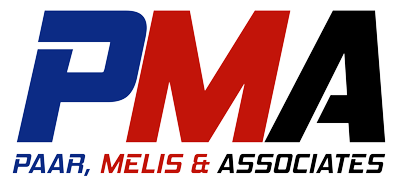Disasters can strike without warning, and as many auto repair shops in Florida recently discovered, even the most prepared businesses can have vulnerabilities. In this blog, we’ll break down actionable steps every shop owner should take to protect their business from natural disasters and other unexpected events. Drawing on insights from episode 140 of the Business by the Numbers podcast, hosted by Hunt Demarest, CPA, we’ll explore the importance of everything from securing power sources to having the right insurance in place.
The Reality of Power Outages
One of the most common lessons auto repair shops learn too late is the impact of a power outage. As highlighted in the episode, a Florida shop that weathered a storm without physical damage was still crippled by days of unreliable power. Even with deliveries continuing and cell phones working, the lack of electricity brought the business to a standstill.
This leads to an essential question: Should you invest in a generator? While tax credits for generators are sparse, investing in one could be a wise business decision, especially if your location is prone to storms, power surges, or outages. For those who generate substantial income from their shop’s operations, it’s a safeguard worth considering. And even if a generator isn’t a fit for your business, research whether your utility provider offers rebates, or if there are financing options to ease the cost.
Don’t Forget Data Protection
Losing access to your business data can be just as disastrous as a physical catastrophe. One shop Hunt works with recently lost nearly 10 months of data after a computer failure, resulting in over $6,000 in costs to restore records. This situation underscores the importance of off-site backups.
If your shop uses QuickBooks Desktop or stores financial data locally, it’s crucial to set up an automated off-site backup. A physical backup drive won’t be enough in the event of a fire or flood. Cloud-based storage solutions can now be set up for less than $20 a month, providing peace of mind and protecting against data loss.
Financial Cushion: Cash is King
Hunt also stresses the importance of having a financial buffer. Every shop should have at least three months’ worth of operating expenses saved up in case of emergencies. This cash reserve can cover payroll, rent, and other critical expenses if your business is forced to close temporarily.
In today’s climate, even if your shop isn’t hit by a hurricane or fire, a financial safety net ensures that you can recover from downtime quickly. Don’t rely solely on insurance payouts—they can take weeks or months to process. Having your own resources available can keep your shop afloat while insurance claims are settled.
In today’s climate, even if your shop isn’t hit by a hurricane or fire, a financial safety net ensures that you can recover from downtime quickly.
Critical Insurance Coverage
Lost revenue insurance is another must-have for shop owners. While property insurance will cover physical damage, lost revenue insurance provides funds to cover overhead, employee wages, and other expenses if your business has to close temporarily. It can be the difference between surviving a disaster and closing your doors for good.
In addition, review your policies with your insurance agent regularly to ensure you’re covered for all possible scenarios. Common gaps include not having sufficient coverage for fire or theft or failing to insure customer vehicles while they’re on your property.
Backup Internet Options: Staying Connected When It Matters Most
In today’s digital world, internet connectivity is essential for running a business. One option gaining popularity among auto shops is Starlink, a satellite-based internet service. It’s an affordable and effective way to ensure you stay connected even if your primary internet goes down. In addition, Starlink is a tax-deductible expense for your shop, offering both functionality and a financial benefit.
Preparedness is the key to protecting your auto repair business from unexpected disasters. By investing in reliable power sources, ensuring data security, having a cash reserve, and securing comprehensive insurance, you can mitigate risks and keep your shop running smoothly. Don’t wait until it’s too late—start preparing today.

